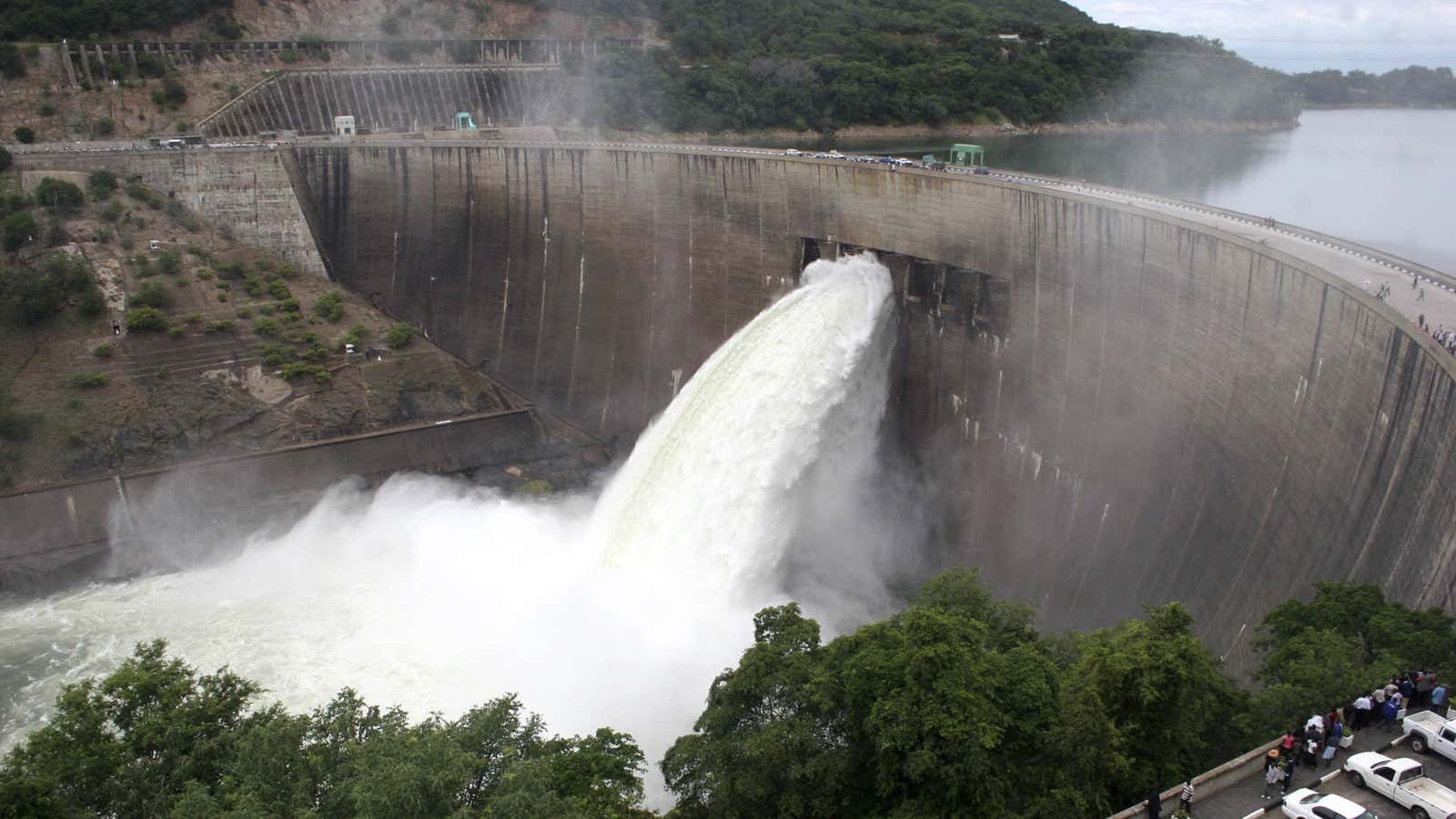Zambia was plunged into darkness as a massive blackout cut power to virtually the entire country earlier this week.
The capital of Lusaka and all the major cities were without power for the second time this month as the copper-producing southern African country grapples with a crippling drought and far-reaching economic crisis.
The state-run ZESCO power company blamed a fault at a substation and said electricity was restored to almost all the nation Wednesday. The only areas unaffected were districts served by a small power station near the town of Livingstone adjacent to the scenic Victoria Falls.
Even if the official line is correct, perilously low water levels on the Zambezi River and Lake Kariba mean a critical power shortage is likely to continue for months to come.
Hydropower produces the vast majority of Zambia’s electricity and a two-year drought has dramatically reduced supplies from dams, including the massive one on Lake Kariba that Zambia shares with neighboring Zimbabwe.
Water levels have recently declined to 16% of capacity, compared to 53% at the same time last year, ,according to figures from the Zambezi River Authority.
The latest blackout also hit mines in the country’s crucial copper mines, which were forced to resort to backup generators to keep production going and safeguard the lives of miners. The power cut, which came as the mostly Christian country celebrates the festive season, came amid a devastating multifaceted economic crisis.
Zambia has been slammed by the plunging price of copper, which is its main export and the source of up to 80% of its foreign currency reserves. Jitters about soft demand in China for the red metal—viewed as a proxy for industrial production—has driven the price down to six and a half-year lows of $4,450 a ton this month.
That in turn has sent the Zambian currency diving to all-time lows of about 14 kwacha to the U.S. dollar last month. It has since bounced back somewhat to 11 kwacha as Zambian diaspora returning home for the festive season buy local currency.
The government of president Edgar Lungu is struggling to cope as it scrambles for foreign currency to repay bonds denominated in hard currency that the country took out when it was seen as a fast-growing economic success story just a few years ago.
Aside from man-made economic woes, Zambia can also blame Mother Nature in part for its predicament. Last year’s rainy season, which coincides with the summer in the southern hemisphere, was worse than usual, reducing crop yields especially for the staple maize and tobacco, which is a major export crop.
The poor rains also starved have reduced water levels in the mainstay Zambezi River, which along with the Kafue River produces most of the country’s power.Zambians would normally be counting on rapidly rising river levels around this time of year as the rainy season kicks into gear.
However, the record-setting El Nino in the Pacific Ocean is causing drought conditions across the entire southern African continent. That raises the prospect that rains will never start in earnest this season, keeping water levels low for the better part of another year.
So as hard-pressed Zambians were already struggling to figure out a reason to be cheerful this holiday season, the massive blackout is a reminder that even leaner days likely lie ahead.
